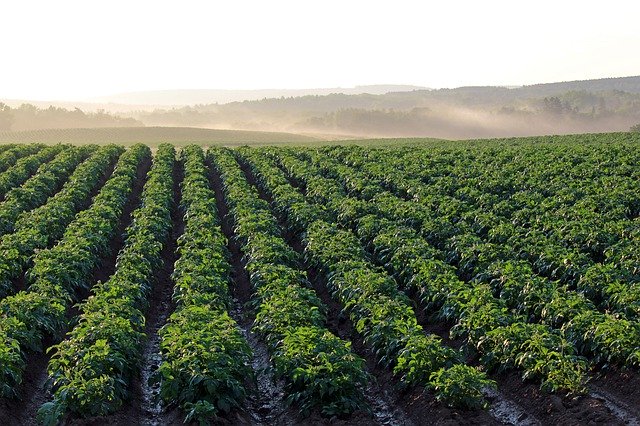Increased frozen potato product processing demand supported farmland value increases in potato regions across Canada, Farm Credit Canada’s (FCC) annual farmland values report for 2019 shows.
Nationally farmland values rose 5.2 per cent in 2019 — the smallest increase over the past decade. Areas with potato production though recorded larger increases than those without though.
In southern Alberta around Lethbridge, farmland increased by 3.9 per cent — beating the provincial increase of 3.3 per cent. Cavendish Farms opened a new processing plant in the area which gave producers an incentive to increase their irrigated potato production, the report notes. However dry conditions negatively impacted values for unirrigated land.
In New Brunswick the western region of the province saw an average increase of 17.1 per cent, this was mainly influenced by the presence of potato producers and processors. Provincially the Atlantic province recorded a 17.2 per cent increase, up 1.8 per cent from the previous year.
Harvest conditions in western New Brunswick were good for the most part with only a small area of potatoes left unharvested, the report notes. Despite the number of potato growers continuing to decrease, the number of seeded areas grew, resulting in expanding operations.
The area’s potato processing capacity has also increased in recent years, pushing demand for potato land higher. Competition for land across New Brunswick’s potato belt is expected to be sustained in 2020, if not increased, the report says.
Prince Edward Island also noted a decrease in potato farms, however acres remained consistent pointing to larger farms. P.E.I. does have an ownership cap of 1,000 acres for individuals and 3,000 acres for corporations, meaning a growing number of farmers are approaching this limit.
Provincially farmland values increased by 22.6 per cent, up from a 4.2 per cent increase the previous year. Farmland values were influenced by high demand from processing plants in the area, combined with expansions from some producers, the report says. The closure of a potato processing facility in 2018 doesn’t appear to have affected land prices, as demand remained strong and land prices have increased.











